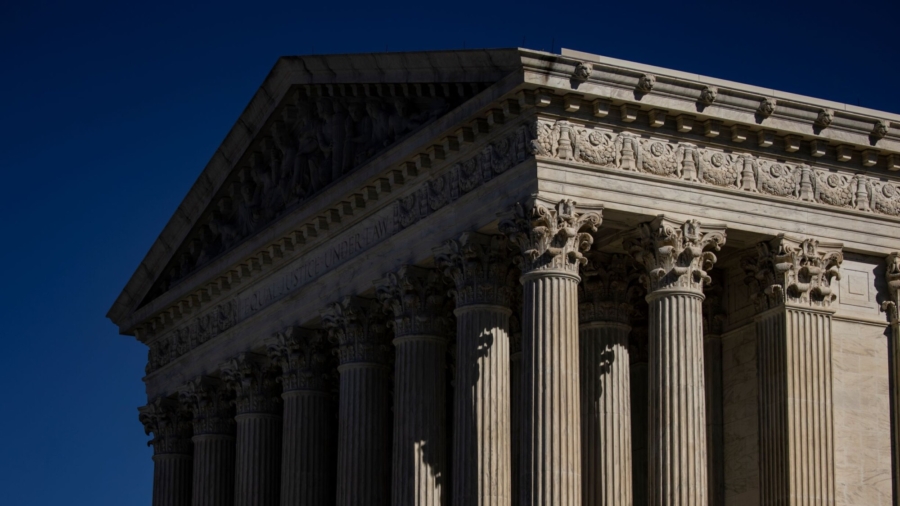The U.S. Supreme Court ruled in a 5-4 decision that federal eminent domain powers can be used to seize land to construct the PennEast Pipeline in New Jersey.
The ruling, announced Tuesday (pdf), did not fall along the typical ideological lines. Republican appointees Chief Justice John Roberts, Justice Samuel Alito, and Justice Brett Kavanaugh voted in the majority along with Democrat-appointed Justices Stephen Breyer and Sonia Sotomayor.
Justices Neil Gorsuch and Amy Coney Barrett, who were appointed by former President Donald Trump, dissented in the ruling. Justice Clarence Thomas, one of the most conservative justices, and Democrat appointee Elena Kagan joined them.
The majority ruled that PennEast has the power to seize state-owned and protected lands to construct its 120-mile-long natural gas pipeline between New Jersey and Pennsylvania. The decision upheld a precedent that energy firms have previously used to build pipelines around the United States.
Their ruling also reversed a September 2019 decision handed down by a federal appeals court that had blocked PennEast from seizing lands from New Jersey.
The pipeline would link Marcellus Shale dry gas production with markets in New Jersey, New York, and Pennsylvania. Some 1 billion cubic feet of natural gas will be transported per day from Pennsylvania to New Jersey, according to PennEast.
Paul Clement, an attorney for PennEast, argued in front of the Supreme Court that New Jersey’s claim of sovereign immunity doesn’t apply because the pipeline firm was acting on behalf of the federal government when the federal Federal Energy Regulatory Commission granted approval for the project.
“If we lose this case, then this pipeline will not be built in anything like its current configuration,” Clement had said. “I don’t think there is a way to reroute this pipeline in a way that doesn’t in some way impact New Jersey land.”
New Jersey attorneys argued that a private entity like PennEast cannot file a lawsuit against a sovereign state to acquire the property, saying only the federal government has that ability. The Supreme Court’s majority rejected that argument.
“Although nonconsenting States are generally immune from suit, they surrendered their immunity from the exercise of the federal eminent domain power when they ratified the Constitution,” Roberts wrote for the majority, adding that the federal government can delegate eminent domain power to private parties who then “can initiate condemnation proceedings, including against state-owned property.”
But Barrett, in a dissent, said the majority lacks evidence and “cannot muster even a single decision involving a private condemnation suit against a State, let alone any decision holding that the States lack immunity from such suits.”
“It relies exclusively on suits brought by States, suits brought by the United States, suits brought by private parties against other private parties, and suits brought by Indian tribes against private parties—none of which implicate state sovereign immunity,” she wrote.
The Epoch Times has contacted PennEast for comment.
The case is PennEast Pipeline Co. v. New Jersey, 19-1039.
From The Epoch Times


